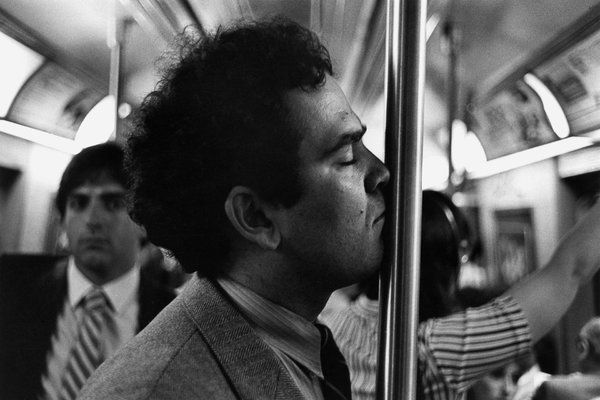There is a common tendency to view history in simplistic terms – to see past eras and events solely through the lens of our modern sensibilities, categorizing everything that preceded the present day as either morally righteous or condemnable. But this black-and-white framing of history fails to honor complexity or appreciation for the complexity in the human experience. This article will explore how reclaiming nuance is crucial to gaining a rich, empathetic understanding of both history and our shared humanity.
The View of the Past as Primitive
One distortion of history is to regard all aspects of the past as categorically inferior to the present. This risks writing off entire periods and cultures according to our limited modern viewpoints. For example:
- Dismissing pre-modern medical understanding as “backwards” rather than a body of knowledge developed given the constraints of the time. Early healers effectively addressed many ailments.
- Neglecting economic and social systems not modeled on capitalism as universally “flawed” rather than contextually appropriate response to material realities. Diverse models met needs of their populations.
- Characterizing religious or spiritual traditions outside Abrahamic faiths as universally “superstitious” or “primitive” rather than meaning-making frameworks addressing existential questions as effectively as any.
In reality, every era was multi-dimensional – just as today simultaneously possesses light and shadows. To reject entire civilizations as wholly regressive overlooks ingenuity, collective wisdom, cultural richness achieved under various constraints of circumstance. A nuanced view recognizes life was lived as fully then as now.
The View of the Past as Utopian
Equally reductive is to regard history through rose-colored glasses as universally better, ignoring those marginalized or suffering even in much-lauded periods. A balanced perspective considers:
- Most eras lacked rights/protections modern societies regard as basic, disproportionately impacting vulnerable groups. New understandings rightfully critique past failures with compassion for humanity’s ongoing progress.
- Material and medical comforts often eluded many whose resourcefulness still merits our respect and wonder. Our abundance arose from their effort and sacrifice.
- Traditions preserved communal bonds for some while oppressing dissenters according to views outdated today. Both aspects teach ongoing cultural work toward ideals of justice, equity.
- Nostalgia risks obliviousness, equating past privileges of dominant populations with universal human experiences that fell short for too many according to our modern standards of dignity.
Overall, neither condemnation nor nostalgia do justice to shifting human experiences across diverse locales and populations within any era. A thoughtful and humane perspective acknowledges humanity’s shared triumphs amid frailties across history in all its nuance.
The Complexity of Moral Issues
A especially challenging distortion in thinking about history is simplifying the ethical dimensions of past decisions and events into simplistic terms of good versus evil. In reality:
- Individuals navigate moral dilemmas from varying vantages, each influenced by their formation within specific cultural/historical contexts. Judging actions requires understanding the actors’ frameworks.
- Well-intentioned policies or social movements carried unintended harms, as all human endeavors do, according to the limitations of knowledge of their eras. Nuance recognizes unintended consequences.
- Diverse moral systems existed, each internally coherent response to their circumstances. While some caused demonstrable harms, others effectively addressed relational/material realities of their settings according to the lenses available.
- Decision-makers aimed to serve populations as they understood them while short-sighted in other respects, as all are inherently limited. Condemning individuals prohibits learning from example.
- Multifactorial issues like colonization, slavery, war comprise shades of perspective acknowledging degrees of culpability amid forces beyond any single actor’s control.
In revisiting past injustices and their remedies, wisdom discern historical complexities and humans’ capacity for both progress and failure without absolving accountability or reducing discussions to blame. Contextual understanding does not excuse harm but promotes empathy, wisdom.
Subjectivity of Experiences
Perhaps the subtlest distortion arises from assessing past realities according only to modern lenses without acknowledging diversity of human experiences even within cultures. For instance:
- Gender, class and social dynamics differed significantly by time, place and perspective. While some thrived, progress rightfully recognizes marginalized communities.
- Cultural/spiritual traditions meet psychological/social needs for meaning and community in ways individual experiences ranged within. Varied modes of expression supported wellness.
- What constituted meaningful work, leisure, family life understandably shifted according to material and social configurations people ingeniously navigated.
- Experiences of self-governance, childhood, aging were mediated by cultural and economic conditions altering what was expected, provided, or attainable across time.
A thoughtful perspective appreciates diversity of human experiences across the complexity of history. Myopic presentism neglects variations in what constituted thriving according to an era’s embedded understandings before modern conceptualizations emerged.
Recapturing Nuance
In reclaiming the subtlety of human experiences across place and time, several key insights emerge:
- Neither condemnation nor nostalgia do justice to diverse human realities navigating systemic constraints with creativity, care, wisdom.
- All civilizations comprised strengths along with aspects outdated by evolving ethics; shared hopes for equitable, compassionate community amid changing constraints.
- Individual lives contained layers beyond any singular perspective; collectives navigated transitions amid societal learning.
- Humans experience continuity amid change; empathy respects humanity across history’s flow rather than falsely severing past from present lives.
In revisiting both triumphs and inequities, an open-minded perspective acknowledges history’s richness and complexity – our shared stakes in progress, yet humility regarding any era’s full comprehension including our own. Nuance recaptures appreciation for forebears’ grit, genius amid limitations as echoed in our own journey, and enhances humanity’s ongoing conversation with the past, present and future.
